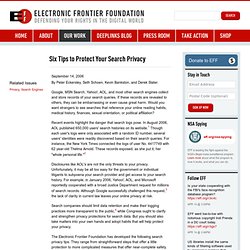

IP country blocks. Block Chinese and Korean IP Addresses From Apache Based Servers with .htaccess Blocklist. Compiled by Wizcrafts Computer Services (see website links in footer) We publish additional .htaccess blocklists to block spammers, scammers, hackers and exploited servers.

See our other .htaccess blocklists: Exploited Servers Blocklist | Nigerian Blocklist | Russian Blocklist | South American Blocklist These IP blocklists are also available in iptables format, for use in Linux based firewalls. If you are just trying to block scams and spam from your email inbox, read this section. Apache web servers use a special access control file named .htaccess, which uses a combination of directives to allow or deny access to files or folders on the server. If you are running an Apache Server based website or forum that is plagued by Chinese or Korean spammers, or exploiters, adding this DENY FROM list to your .htaccess file, in the web-root of your server, will block access to any person (or spam server) covered by a CIDR in this list. Important Notice! And now, a word from one of our sponsors: Anonymous - Message to the American People.
Command Line. Six Tips to Protect Your Search Privacy. By Peter Eckersley, Seth Schoen, Kevin Bankston, and Derek Slater.

Google, MSN Search, Yahoo! , AOL, and most other search engines collect and store records of your search queries. If these records are revealed to others, they can be embarrassing or even cause great harm. Would you want strangers to see searches that reference your online reading habits, medical history, finances, sexual orientation, or political affiliation? Recent events highlight the danger that search logs pose. Disclosures like AOL's are not the only threats to your privacy.
Search companies should limit data retention and make their logging practices more transparent to the public,4 while Congress ought to clarify and strengthen privacy protections for search data. The Electronic Frontier Foundation has developed the following search privacy tips. 1. Don't search for your name, address, credit card number, social security number, or other personal information. 2. 3. 4. 5. 6. Conclusion September 2006 2 See.
Q&A: Google Privacy Facts and Tips. SAN FRANCISCO — If you're amazed — and maybe even a little alarmed — about how much Google seems to know about you, brace yourself.

Beginning Thursday, Google will operate under a streamlined privacy policy that enables the Internet's most powerful company to dig even deeper into the lives of its more than 1 billion users. Google says the changes will make it easier for consumers to understand how it collects personal information, and allow the company to create more helpful and compelling services. Critics, including most of the country's state attorneys general and a top regulator in Europe, argue that Google is trampling on people's privacy rights in its relentless drive to sell more ads. Related story: Clear your Google search history now Here's a look at some of the key issues to consider as Google tries to learn about you. Q: How will Google's privacy changes affect users? Q: Why is Google making these changes? Q: Are all Google services covered by the privacy policy? A: The U.S. Everything Google Knows About You In One Place.